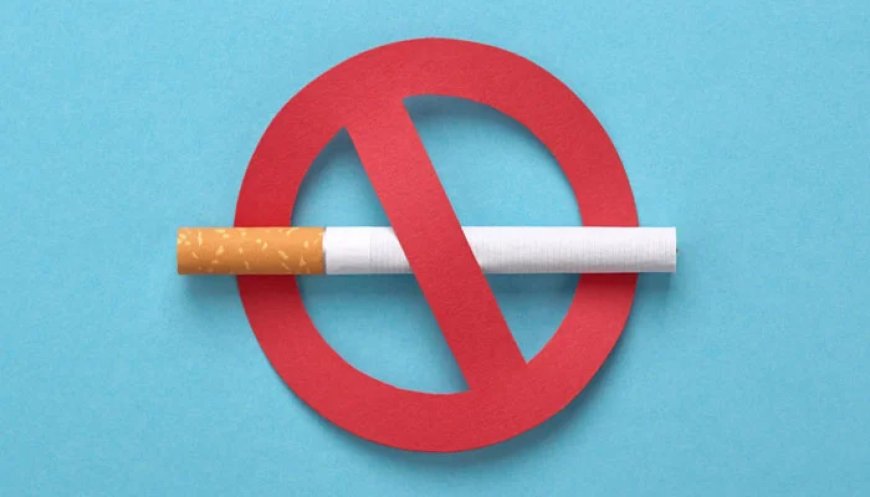World No Tobacco Day 2024: How I rose from smoke and ashes

1.
On "World No Tobacco Day 2024", I find myself looking back on my nearly impossible journey from the chains of addiction to the liberation of a life free of smoking.
Here's the tale of my quest for quitting what was not only killing me but also those around me.
It all started back in 1992, a year burnt into my memory not only for Pakistan's Cricket World Cup victory but also for the insidious influence of a major multinational cigarette manufacturer that sponsored that healthy sporting event.
Back in the day, advertisements gave the impression that every cricketer was a chain smoker, influencing my perception of this injurious habit. By the 1996 Cricket World Cup, which was sponsored by a multinational cigarette producer, I had started smoking, heavily influenced by continuous tobacco advertising on TV and billboards, and in newspapers and magazines.
During school and college, I’d spent all my pocket money on cigarettes, stolen from my mother’s purse, borrowed from my friends and even taught young ones to fund my habit. By the year 2000, I was smoking around 20 cigarettes a day. As a journalist, my habit grew to 30 cigarettes daily, with most of my income turning into smoke and ash due to my nicotine addiction.
By 2013, after 17 years of smoking, I realised I had become lazy and irritable. My health was deteriorating, and I was struggling with daily tasks. I used to smoke before breakfast, multiple times before lunch, and throughout the day and night, ignoring “no smoking” signs at work and in public places.
By 2015, I noticed smoking had severely impacted my life. I was depressed, and irritable and had difficulty walking or climbing the stairs. My performance at work declined, and my family life was suffering as well. Realising I had become impotent at 35 was a wake-up call.
Deciding to quit smoking was challenging. Even thinking about quitting used to cause anxiety. However, a pulmonologist helped me by suggesting I repeatedly tell myself to quit.
On January 17, 2016, I finally stopped smoking with the help of a chewing gum-like medication, family support, and divine strength. The cravings were strong, but my mantra for quitting helped me overcome the addiction, and I now detest smoking, despite occasional deceptive dreams of smoking.
Over the years I have understood the significant health risks of smoking, including lung cancer, cardiovascular diseases, respiratory illnesses and other chronic conditions. In Pakistan, with alarmingly high smoking prevalence, addressing this public health crisis through effective policy measures is imperative. One such measure is making cigarettes more expensive and less accessible through robust taxation.
Pakistan’s smoking rates are worrying, with 830 billion cigarette packs being consumed annually. This high rate of tobacco use leads to substantial health burdens, including increased healthcare costs and productivity losses due to smoking-related illnesses.
The consequences of smoking not only affect the smokers themselves but also the society at large through second-hand smoke exposure and the economic impact of treating tobacco-related diseases.
The Federal Board of Revenue (FBR) has implemented a tiered tax system for cigarettes, with tier one taxed at 145%, and tier two at 146%. Despite these taxes, the total tax collection from cigarettes is Rs240 billion. However, the potential to significantly increase this revenue exists.
Stringent measures are needed to curb the illegal tobacco trade, particularly at critical points like the Azad Jammu and Kashmir border. Another step to curtail smoking can be the imposition of 35 to 40 % tax on cigarettes in the budget 2024-25.
Enforcing adherence to the minimum legal price set by the FBR (currently Rs127.44 per pack) is crucial. Ensuring all tobacco products are sold above this threshold will discourage the sale of cheaper, illicit products, and maintain market integrity. This enforcement will help reduce smoking prevalence by making cigarettes less affordable and boosting legitimate tax revenues.
Increasing the tax on cigarettes is a proven strategy to reduce the rate of smoking. Higher taxes make cigarettes more expensive, deterring initiation among non-smokers, encouraging current smokers to quit, and reducing overall consumption. Additionally, the revenue generated from increased taxes can be allocated to public health initiatives, further amplifying the benefits.
To effectively reduce the rate of smoking and mitigate its health impacts in Pakistan, a multifaceted approach is needed. This includes enforcing robust tax policies, addressing illicit trade, and ensuring compliance with minimum legal pricing.
By making cigarettes more expensive and out of reach for many, the government can protect public health, reduce the burden of tobacco-related diseases, and increase tax revenues for health programmes. This approach will not only curtail smoking but also promote a healthier, more prosperous society.
As we mark the “World No Tobacco Day 2024”, my story of how I kicked the habit is a testament to the power of human will and my eventual triumph over a 17-year-long tobacco addiction is not just a personal battle but a societal imperative, so to speak.
If my journey inspires anyone to take the first step towards an addiction-free life and become an active advocate for effective tobacco control policies, then sharing it was truly worth it. Instead of lighting a cigarette let's blaze the trail for woke anti-tobacco activism to a brighter and healthier future for all. Act now.


















































